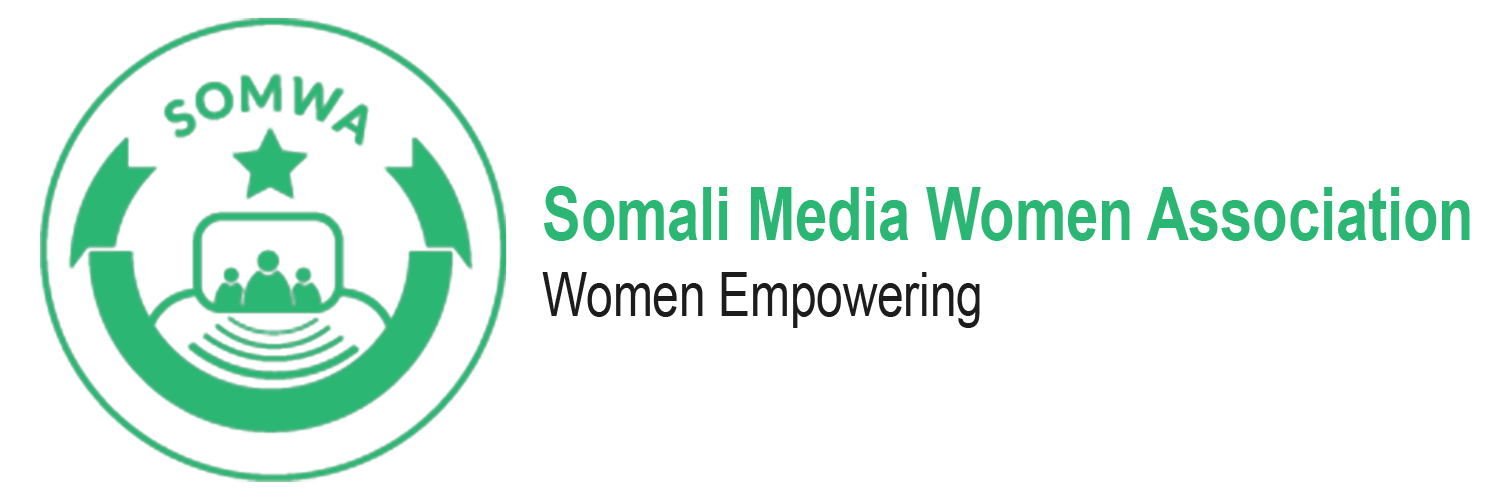Somali Media Women Association ( SOMWA) protests against the draconian Somali Media Law which was recently passed by both houses of Somali parliaments. Somwa appeals to President Mohamed Abdullahi Farmaajo not to sign the contentious media bill because it would open the way for criminal prosecutions for ordinary press offences and would undermine efforts by the authorities in the past year to defend press freedom.
‘’These extremely repressive amendments to the press law are a major blow to journalists in Somalia, who have worked tirelessly to preserve their livelihood, it appears the government is determined to destroy independent press,’’ Somali Media Women Association (SOMWA ) Executive Director Maryan Seylac said. ‘’ We condemn this law and call for its immediate repeal’’.
Article 18 of the country’s Provisional Constitution which clearly indicates that “Every person has the right to have and express their opinions and to receive and impart their opinion, information and ideas in any way”.
Somali Media Women Association ( SOMWA) expresses deep concern in different sections of the media law that was passed in the parliament without considering much of media’s consultations and debates on media law reforms.
Journalists should not be censored or restricted from coverage under the pretext of vaguely worded provisions as per Article 4 (Clause T, J and X) which cites“spreading false news”, “inciting violence or promoting tribalism”,“spreading unfounded propaganda”, “disseminating any news that contains hate or extremism”. This article should be removed.
Article 5 (Clause T) which seeks imposition of a monetary fine (that will be issued in the form of a special regulation) on journalists, editors, media managers for breaching the media law or breaking government-owned Press Council’s “code of ethics” are indeed worrisome and intimidation against journalists and should be deleted.We also demand the removal of Clauses “J” and “X” that further give the Attorney General to prosecute journalists, editors and media managers over “payment of fines”.
The requirement for media houses to obtain a license as stated in Article 9 (Clause X) is illegitimate with regard to online and print media. It is also not necessary for the already licensed broadcast media outlets to seek new license. We also refuse the imposition of advance deposit of unspecified amount of money for any new media house before seeking license, as described in the same Article 9 (Clause X).
Article 11 (Clause J and X) which requires media owners to declare amount of money to be invested on the media house, its source of income/funds, private addresses and identity of managers as prerequisites for applying registration should be removed. The information required for registration of media should not include irrelevant details such as private addresses or personal income of managers and their educational qualifications.
Article 13 which states transition phase and mandates all media houses (new or previously registered) including online media to seek new registration within 60 days from the day this bill is assented into law is again illegitimate and should be removed.
Article 14 (Clause 1, 2 and 6) gives Ministry of information the firm control on Somali Press Council. The Somali Press Council should be independent from government interference at all.
Article 16 (Clause 1) imposes multiple licensing and registration procedures on all media outlets, to be overseen by the Ministry of Information of the Federal Government, the Somali Press Council and the Federal Member States’ Ministries of Information. This is a problematic article and inappropriate in democratic country. It will create more hurdles for media houses and will cost more money.
Article 29 (Clause 1) criminalizes perceived critical reporting by imposing draconian penalties for “dissemination or publication of false information”, “incitement” or “spreading Propaganda against the dignity of any citizen, individual, institution or the government”. The same Article violates the protection of journalistic sources as one of the key rights journalists have in order to exercise their freedom of expression and to execute their duties as a ‘’public watchdog”. We call the removal for this article.
Somali Media Women Association (SOMWA ) Executive Director Maryan Seylac appeals to president Farmajo not to sign the media law which is violating Somalia’s Provisional Constitution without reforming it.

